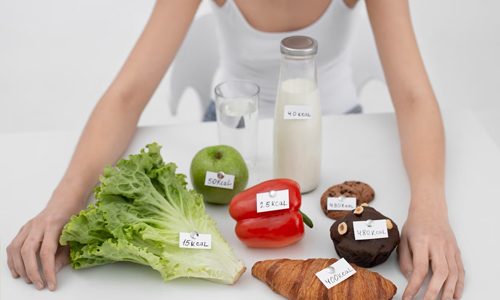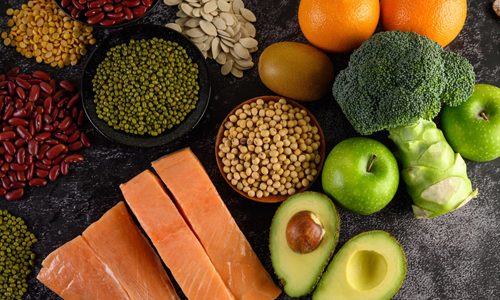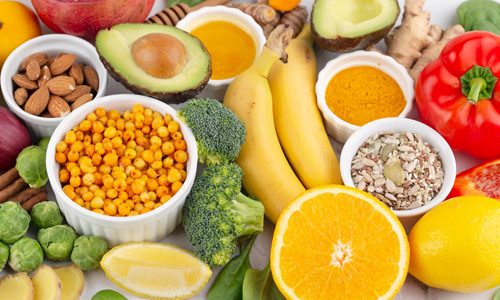Are you planning to start a family? If so, it’s crucial to understand the importance of folic acid during pregnancy. Folic acid, also known as folate, is rich in B vitamins that play a vital role in healthy pregnancy. This blog will explore why folic acid is essential, how much you should take, and when to start taking it.
Importance of Folic Acid During Pregnancy
During pregnancy, folic acid is essential for cell division and growth. It aids in the production of DNA and the formation of red blood cells. Sufficient folic acid levels reduce the risk of anemia during pregnancy and promote good health.
When Can I Start Taking Folic Acid?
You should take the folic acid supplement before you conceive or as soon as you find out you are pregnant. Since the neural tube of the baby develops within the first month of pregnancy, it is crucial to have sufficient folic acid levels during the period. Starting early gives your baby the best chance of healthy nervous system development.
How Much Folic Acid Can I Take?
To promote healthy pregnancy, you should take 400 to 800 mcg of folic acid per day. This dosage ensures proper neural development and protects against Neural Tube Defects, you can see NTDs in detail in a study conducted by the National Library of Medicine. However, always consult with your healthcare professional for personalized advice based on your specific needs and medical history.
Here’s the quantity of folic acid intake as recommended by the American College of Obstetricians and Gynecologists
- While you are trying to conceive – 400 mcg
- First three months of pregnancy – 400 mcg
- Four months to nine months of pregnancy – 600 mcg
- While breastfeeding – 500 mcg
Folic Acid Foods
While supplements are important, it is also essential to include folate-rich foods in your diet. Folate is the natural form of Vitamin B and vitamin B9. Leafy greens, such as spinach and kale, broccoli, avocado, citrus fruits, eggs, beef liver, and grains are excellent sources of natural folate. Aim to consume a diverse range of these foods to maximize your folic acid intake. Especially, avocados contain folic acid, vitamin E, and Vitamin A, which can prevent cancer and promote healthy pregnancy.
Folic Acid Deficiency
Folic acid deficiency is a serious concern, as it can lead to various health complications for both mother and baby. In addition to the increased risks of NTDs and anemia, low folic acid levels during pregnancy have been linked to preterm birth and low birth weight. To avoid these risks, it is crucial to prioritize folic acid intake.
Folate While Pregnant
Taking high folate acid supplements is particularly important during pregnancy because it can be challenging to obtain sufficient levels through diet. While many foods contain folate, the body does not absorb it as efficiently as folic acid. Therefore, it is advisable to take supplements to ensure you are meeting the recommended daily intake.
Folic Acid Pregnancy Benefits
You may come across the term “folate” while researching folic acid. Your body uses folate to repair DNA and produce certain proteins. Folic acid can also prevent many health problems, including anemia, stroke, and certain cancers.
Folic acid, when consumed before and during pregnancy, may protect your unborn child from having the spinal cord and other important brain structures develop improperly. Additionally, it covers your unborn child from heart problems, some types of cancer, poor womb growth, and miscarriage.
Causes of Low Folic Acid
Low folate levels can lead to anemia during pregnancy, putting both mother and baby at risk. It can cause fatigue, weakness, and complications during birth. Anemia can be identified by its symptoms, which include chest pain, a racing heartbeat, a headache, low body temperature, pale complexion, numbness in the hands or feet, and shortness of breath. By maintaining adequate folic acid levels, you can reduce the chances of developing anemia and ensure a healthy pregnancy.
Good Sources of Folic Acid
- Fruits including apples, bananas, blueberries, melons, grapes, oranges, raisins, and strawberries can provide you with 5 to 80 mcg of folic acid.
- You can receive 5 to 110 mcg of folate from cooked vegetables such as beans, broccoli, carrots, cauliflower, corn, potatoes, spinach, tomatoes, and more.
- Meat, poultry, fish, dry peas, eggs, and nuts can all provide you with 5 to 145 mcg of folic acids.
Mostly vitamins help develop your immune system and play a main role in your ageing, so you can grow old healthier while taking calcium, magnesium, and folic acid in your diet plan.
Folic acid during pregnancy supports the healthy development of your baby. The risk of birth abnormalities and difficulties is curable while taking 400 to 800 mcg in your pregnancy. Consult your healthcare provider to ensure you are meeting your folic acid needs to promote a healthy and happy pregnancy.























